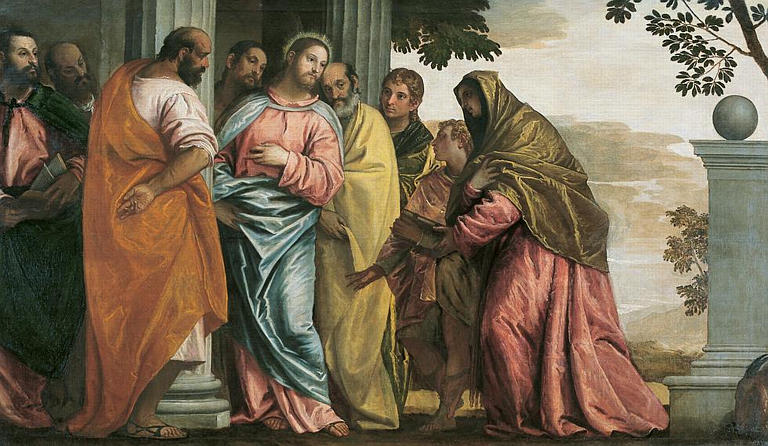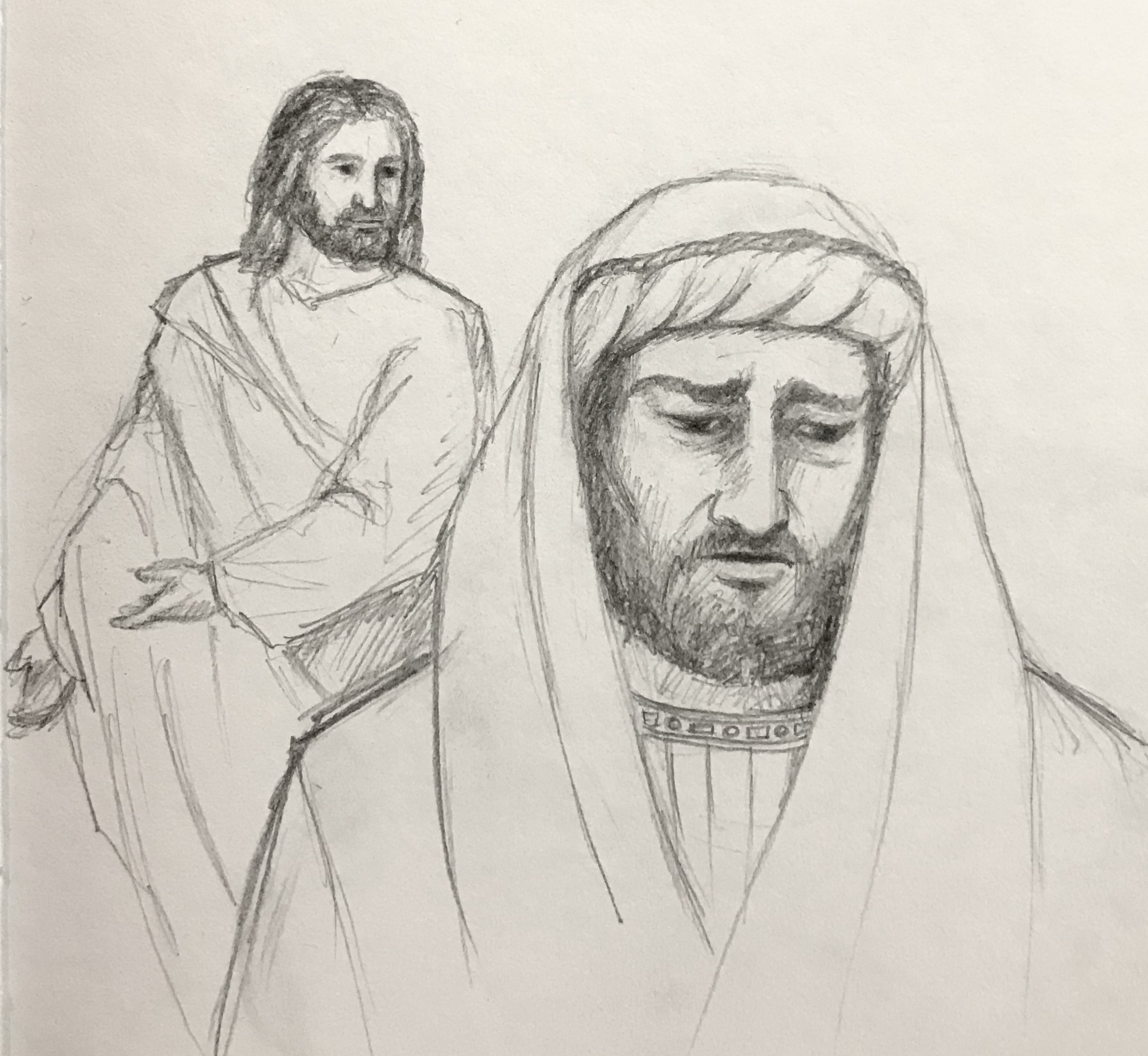 I’ve often heard the reason Jesus named James and John “Sons of Thunder” as having to do with their asking Him to send down fire from heaven to consume the town of unbelievers. I thought it was a humbling compliment, but one they deserved – a light but poignant way to emphasize that though occasionally misplaced, their fervor was remarkable. I was delighted to read in Bede the Venerable’s commentary today a slightly different take. The Sons of Thunder were so named because they heard the voice of the Father on the Mount of Transfiguration. The voice of the Father like thunder, their hearts moved definitively from the static complacency of a life that sees its completion on earth. We can perceive that John’s life was intensely altered by the Word made flesh, the Lamb of God, the Beloved Son, Jesus. John’s conversion to Jesus comes from a Word and a Voice that deeply uprooted his heart. I wonder if the fervor of the first Apostle to be martyred, James, wasn’t like the echo of the heartbeat of his brother John. John’s fervor was so contagious he clearly infected both St. Peter and St. Paul. Perhaps we could say that John loved his brother James so much that Jesus couldn’t refuse James the same graces as his brother.
I’ve often heard the reason Jesus named James and John “Sons of Thunder” as having to do with their asking Him to send down fire from heaven to consume the town of unbelievers. I thought it was a humbling compliment, but one they deserved – a light but poignant way to emphasize that though occasionally misplaced, their fervor was remarkable. I was delighted to read in Bede the Venerable’s commentary today a slightly different take. The Sons of Thunder were so named because they heard the voice of the Father on the Mount of Transfiguration. The voice of the Father like thunder, their hearts moved definitively from the static complacency of a life that sees its completion on earth. We can perceive that John’s life was intensely altered by the Word made flesh, the Lamb of God, the Beloved Son, Jesus. John’s conversion to Jesus comes from a Word and a Voice that deeply uprooted his heart. I wonder if the fervor of the first Apostle to be martyred, James, wasn’t like the echo of the heartbeat of his brother John. John’s fervor was so contagious he clearly infected both St. Peter and St. Paul. Perhaps we could say that John loved his brother James so much that Jesus couldn’t refuse James the same graces as his brother.
Tuesday of the Eighth Week in Ordinary Time
 In yesterday’s Gospel, Jesus showed us the dangers of riches and the difficulty involved in not becoming attached to wealth. Today’s Gospel further cautions us against inventing an easy temporal explanation for how things will be. For Peter and the Apostles who “gave up everything to follow Christ,” Christ tells them that they will receive even more back already in this life. How absurdly paradoxical! Giving up everything then receiving one hundredfold back. Jesus doesn’t say, “become poor so that you can remain poor.” It isn’t that simple. Nor does He say, “Give up your material possessions and wealth so that you will have a spiritual one instead.” Here Jesus says, “Whoever gives up possessions in this life will receive one hundredfold in this life and eternal life in the next.” You almost want to call the rich young man back and tell him, “Hey! If you give it all up you will receive it all back one hundredfold!” Since the point is not about whether or not we have wealth (though having it is more difficult than not) it is better for those who have given all to follow Christ to learn how to use wealth well when it returns a hundredfold. This is what stewardship is all about: we must begin to see everything we have, all our resources and relationships, as gifts from God to be used according to His good will and pleasure as opposed to our own selfish desires.
In yesterday’s Gospel, Jesus showed us the dangers of riches and the difficulty involved in not becoming attached to wealth. Today’s Gospel further cautions us against inventing an easy temporal explanation for how things will be. For Peter and the Apostles who “gave up everything to follow Christ,” Christ tells them that they will receive even more back already in this life. How absurdly paradoxical! Giving up everything then receiving one hundredfold back. Jesus doesn’t say, “become poor so that you can remain poor.” It isn’t that simple. Nor does He say, “Give up your material possessions and wealth so that you will have a spiritual one instead.” Here Jesus says, “Whoever gives up possessions in this life will receive one hundredfold in this life and eternal life in the next.” You almost want to call the rich young man back and tell him, “Hey! If you give it all up you will receive it all back one hundredfold!” Since the point is not about whether or not we have wealth (though having it is more difficult than not) it is better for those who have given all to follow Christ to learn how to use wealth well when it returns a hundredfold. This is what stewardship is all about: we must begin to see everything we have, all our resources and relationships, as gifts from God to be used according to His good will and pleasure as opposed to our own selfish desires.
Monday of the Eighth Week in Ordinary Time

The rich young man somehow knows enough to call Jesus good, but something is lacking in his discernment. The rich young man wants to live out his human life in comfort, following the rules (basically) so that the comfort can continue in eternal life. He is asking Jesus for a confirmation that he is already on the right path. He isn’t actually looking for guidance, he is completely self-assured. Jesus first corrects him on his perception of goodness. The rich young man has a very mundane, human, and horizontal perspective on life. Jesus is not simply another human teacher, He is God. When the rich young man says, “good master,” what he is really saying is, “I’m good, and you’re good just like me.” Jesus tells him that no one is good but God alone. This criteria for goodness is a bit upsetting: it means that no one is “a good person,” but we say and think that all the time. Our petty little human goodness is rot compared to the rich goodness of God.

